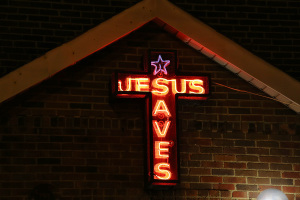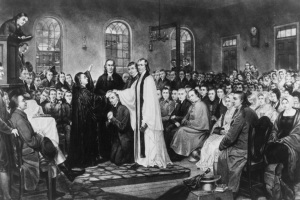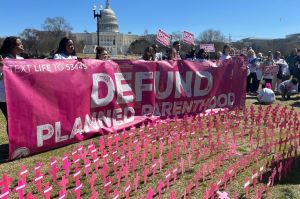United Methodist African Bishops Reaffirm Church's Stance Against Gay Marriage, Oppose Schism

The United Methodist Church's African bishops have recently reaffirmed their support for the traditional definition of marriage, as well as opposition over possible schism within the denomination.
The UMC Africa College of Bishops released a statement Monday stemming from their official meeting held Sept. 3-7 in Freetown, Sierra Leone.
According to their statement, the bishops held extensive discussions regarding the denomination's debate over homosexuality, which many believe may lead to the UMC splitting.
"... we reaffirm our position as traditionalists and view marriage as union between Man and Woman as clearly defined in scripture and affirmed in our COB 2016 statement in Lake Junaluska, and at the Africa extended cabinet (Ghana, February 2018), and at the May 2018 COB in Chicago, Illinois," stated the bishops.
"... we remain faithfully committed to our consecration vows as Bishops of the church to 'maintain the unity of the church.'"
Next February, the UMC will hold a special session of General Conference to resolve the debate over whether to change the church body's official stance against homosexual acts and same-sex marriage.
The African bishops also stated that they reject any proposed plan at the special session that would lead to the mainline denomination splitting over theological differences.
"We do not support any legislation that calls for the dissolution of The United Methodist Church. We uphold our values as a connectional and worldwide church committed to 'Making disciples of Jesus Christ, for the transformation of the world,'" continued the statement.
"We further resolve that even if there is a split in the denomination, the Church in Africa will continue to exist as The United Methodist Church in Africa."
During the UMC's years-long debate over homosexuality, African delegates at General Conference have been a key factor in maintaining the denomination's stance that homosexual acts are sinful.
For next year's special session, three major plans are being considered for the future of the UMC: the One Church Plan, the Traditional Plan, and the Connectional Conference Plan.
Backed by most of the UMC Council of Bishops, the One Church Plan would remove language labeling homosexuality "incompatible with Christian teaching," and allow churches in the United States to permit same-sex weddings and gay ordination while letting clergy and some overseas conferences retain official opposition.
The Traditionalist Plan would maintain the UMC's current stance on LGBT issues while the Connectional-Conference Plan would allow regional conferences to determine what stance they will take.





























